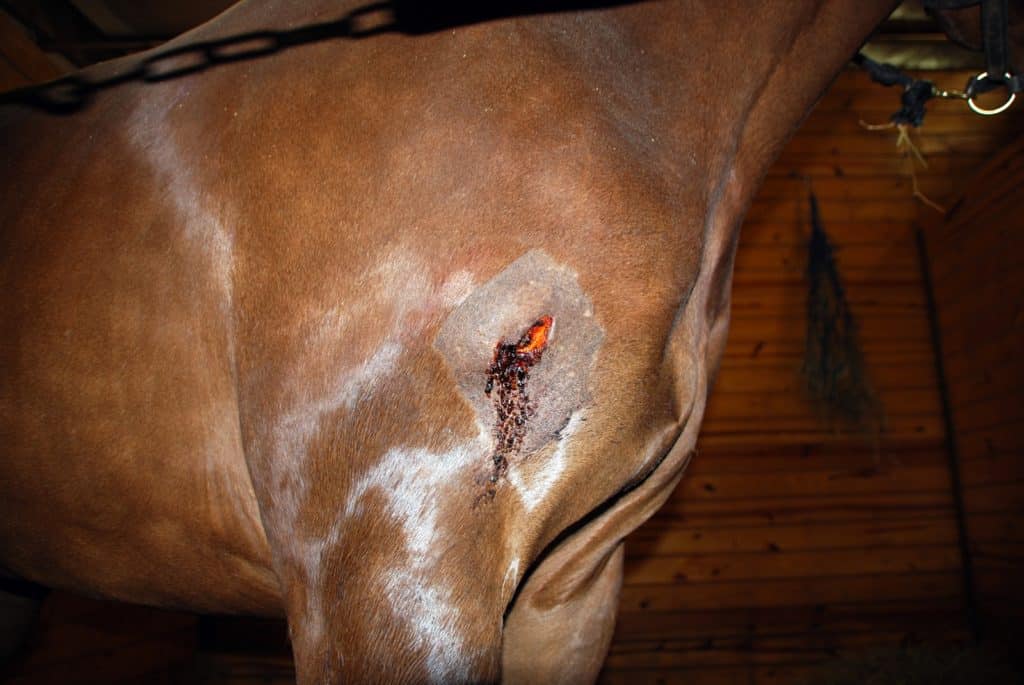
Preventing and Treating Sepsis-Related Laminitis
Advances in how vets manage sepsis, as well as incorporating preventive strategies for laminitis, are leading to improved outcomes.
News and issues for equine health professionals

Advances in how vets manage sepsis, as well as incorporating preventive strategies for laminitis, are leading to improved outcomes.

Cornell researchers found that factors secreted by mesenchymal stromal cells might help fight bacteria in skin wounds.

Eye specialist Dr. David Wilkie covers ERU (aka moon blindness) clinical signs, causes, exams, treatment, and more.

Resistant bacteria do not necessarily have the ability to cause more severe disease as long as veterinarians identify them promptly and begin appropriate treatment.

Of the 323 respondents, only 81 (25%) have had a gastroscopy performed on their horse to check for ulcers.

During AAEP’s Kester News Hour, Dr. Rob MacKay reviewed his favorite studies of 2017, covering EPM, EHV, SAA, and more.

A “GIP” antagonist could provide an alternative way to combat metabolic disease in equids, researchers found.

This confirms the need for good hygiene within vet hospitals to prevent MRSA spread between veterinarians and horses.

Dehydration, fitness, and breeding can lead to specific challenges when treating colicky horses during endurance rides.

Both anti-inflammatory drugs reduced fecal microbial diversity, which could negatively impact horse health.

Both endoscopic techniques provide invaluable information and, in most cases, should be used together, one practitioner says.

Researchers compared foaling prediction methods and recommend using a combination of available techniques.

Ejaculate with less than 20% urine contamination might be suitable for freezing without centrifugation.

A closer look at two melanoma “vaccines” under investigation and being considered for USDA approval.

This can pose a problem for mare owners working with a limited breeding window due to the short lifespan of the mare’s oocyte and the stallion’s sperm.

Vets can use a smartphone-based heart monitor to identify arrhythmias that are difficult to diagnose in the field.
Stay on top of the most recent Horse Health news with
"*" indicates required fields